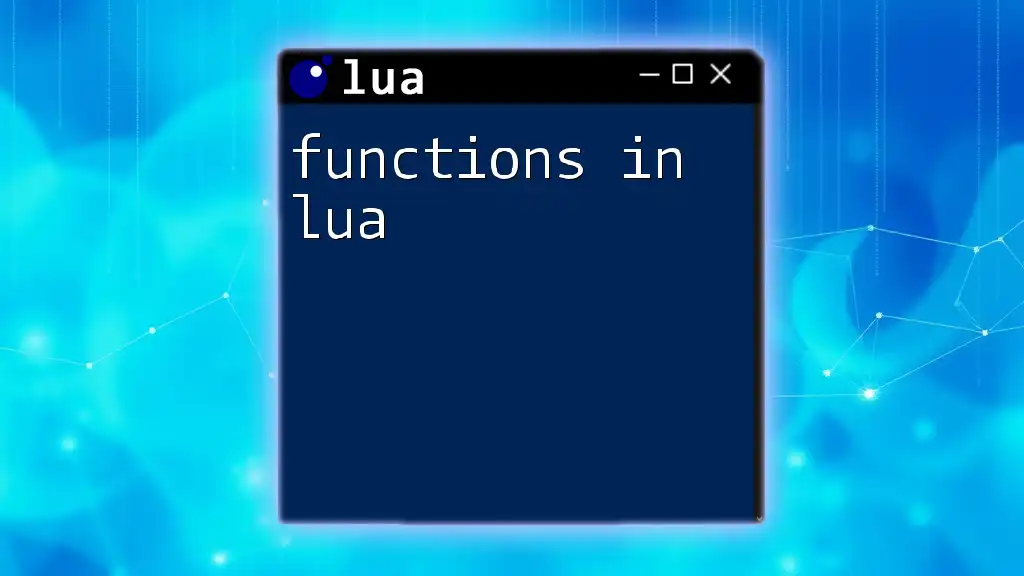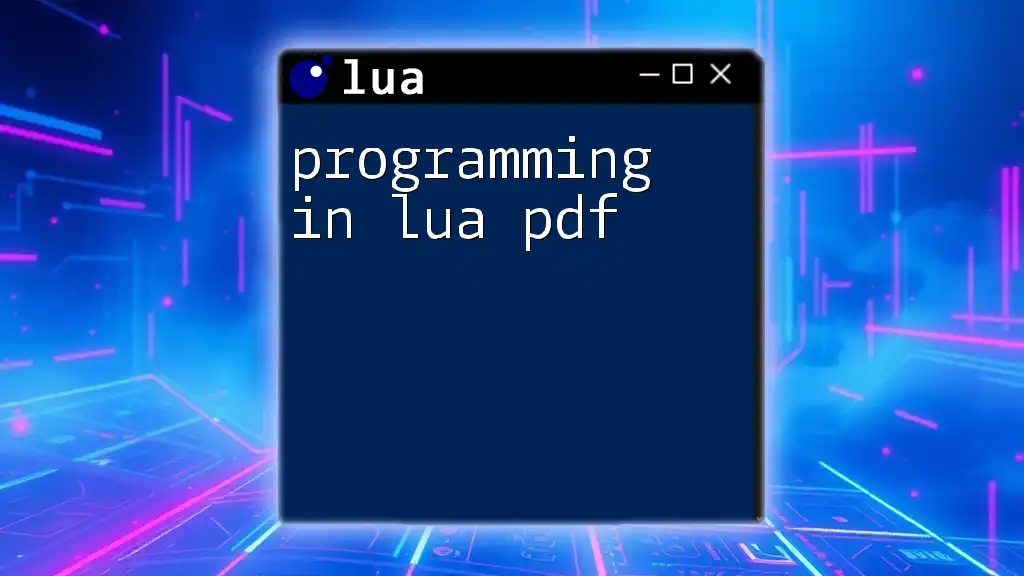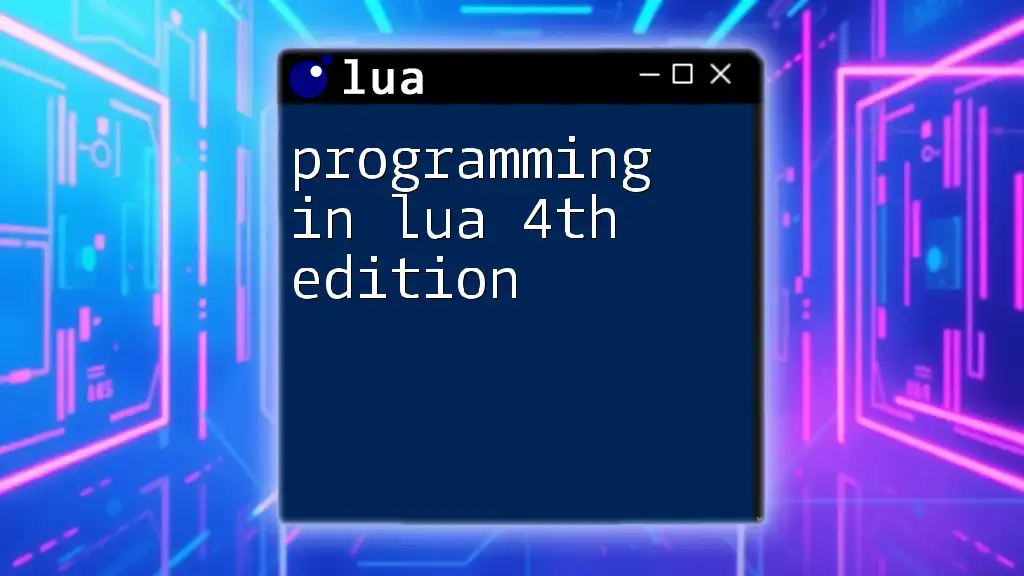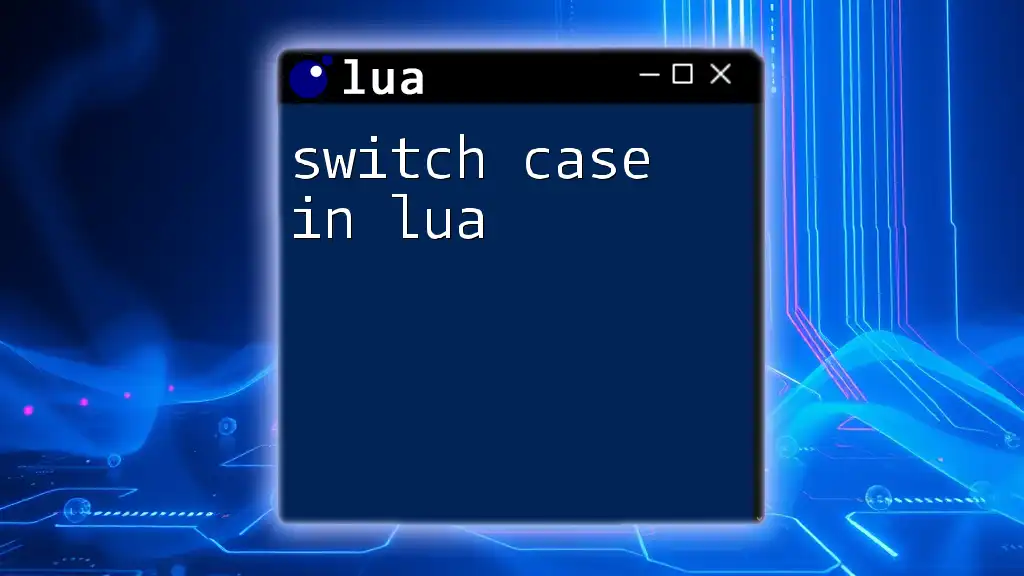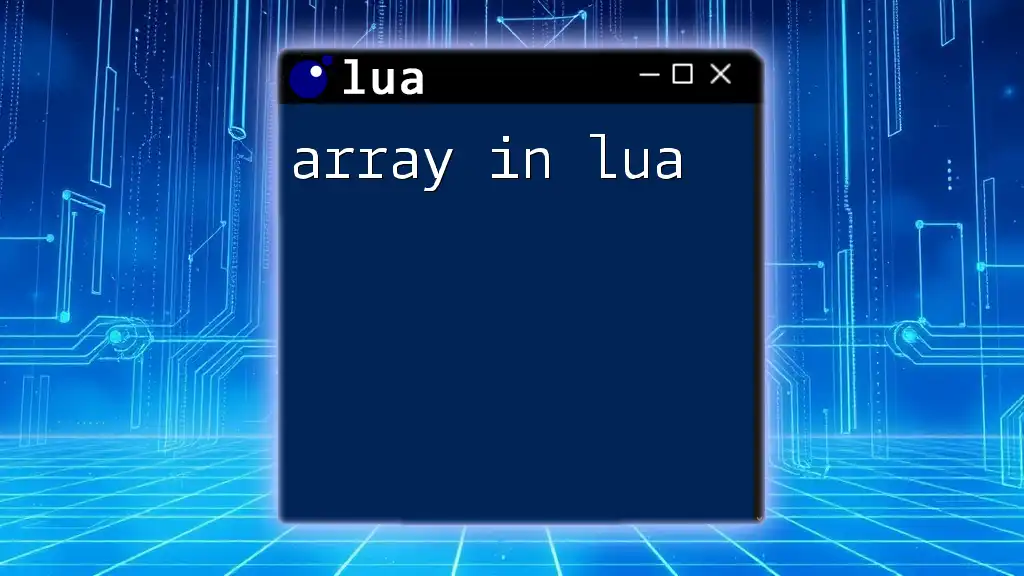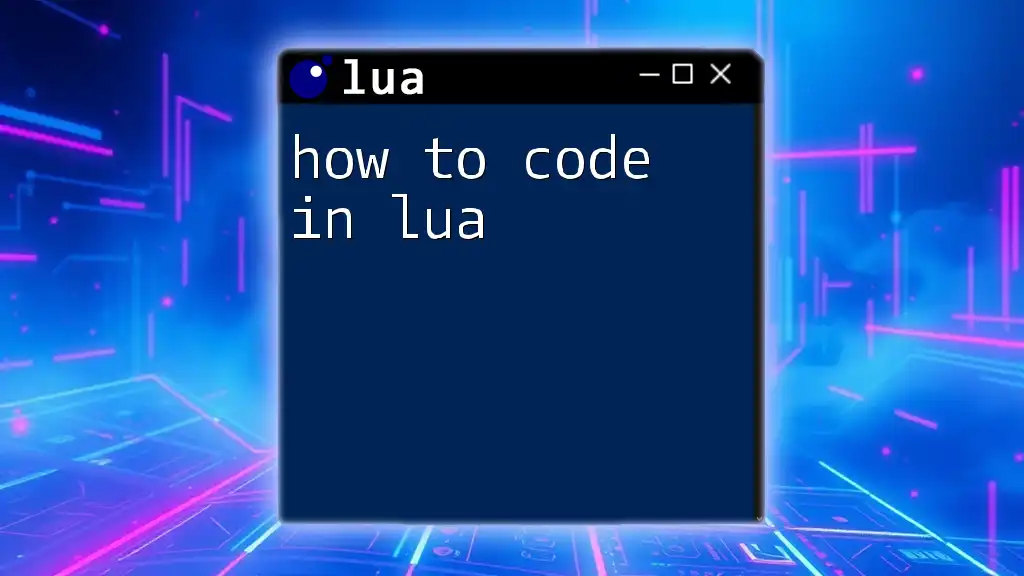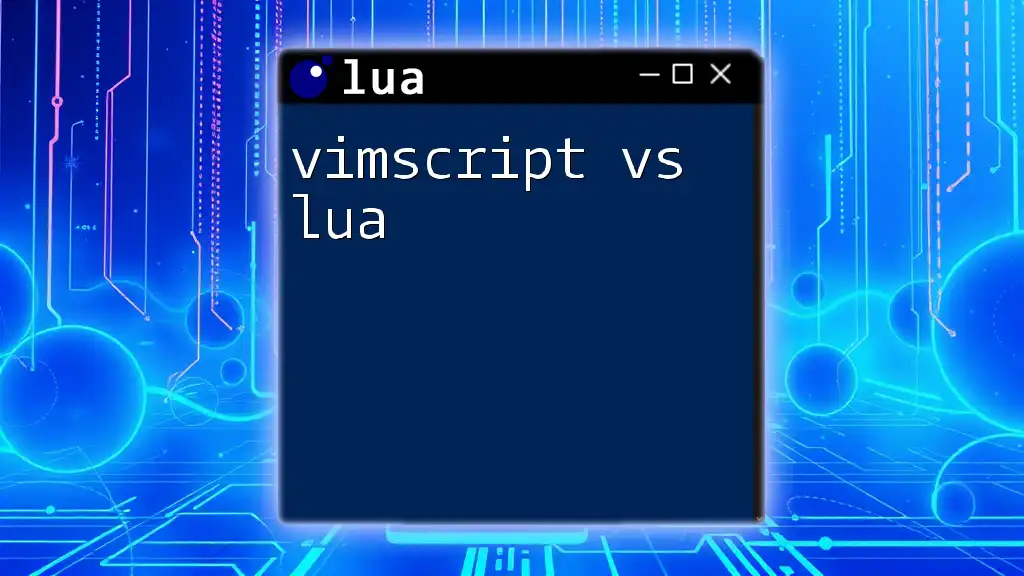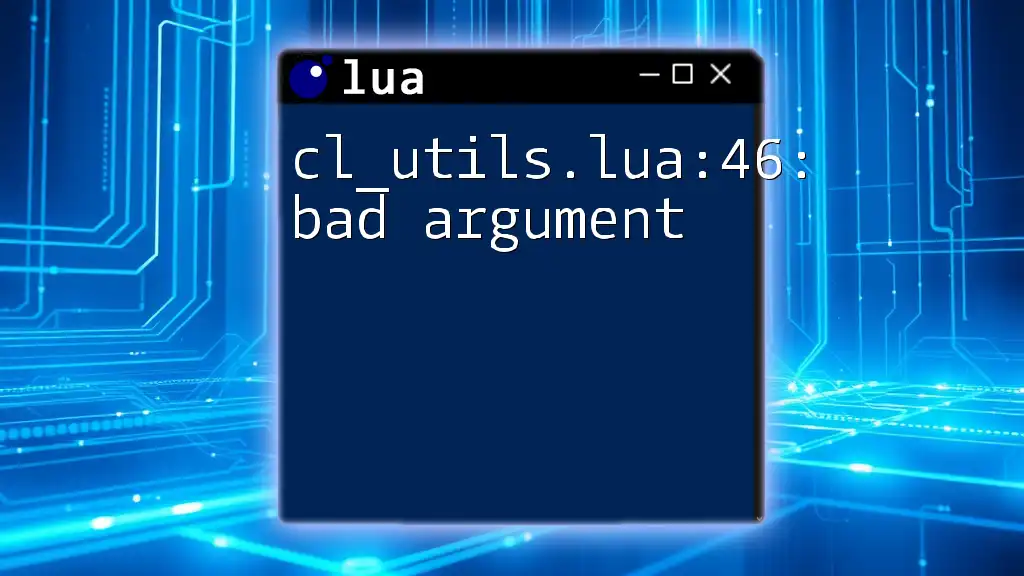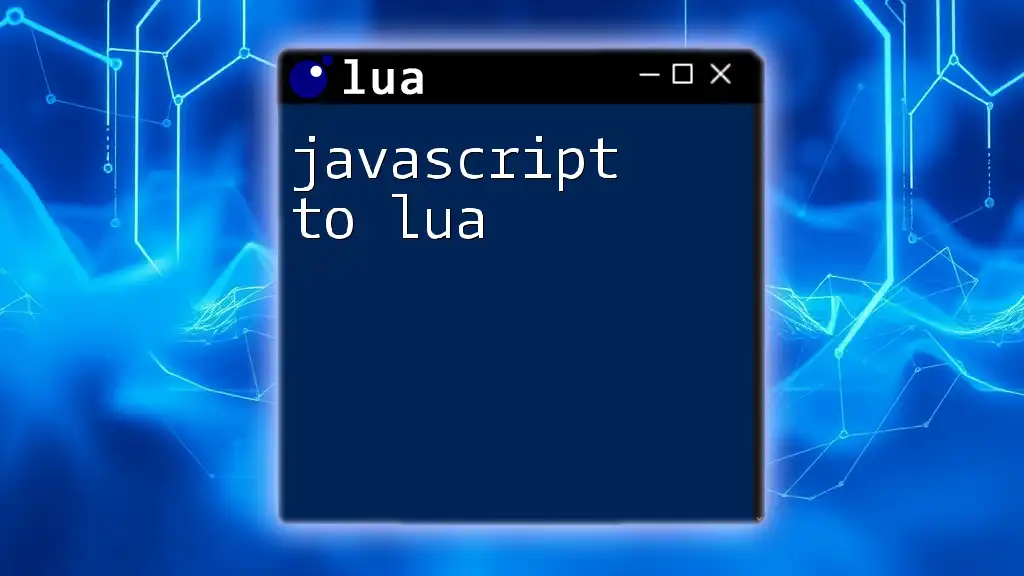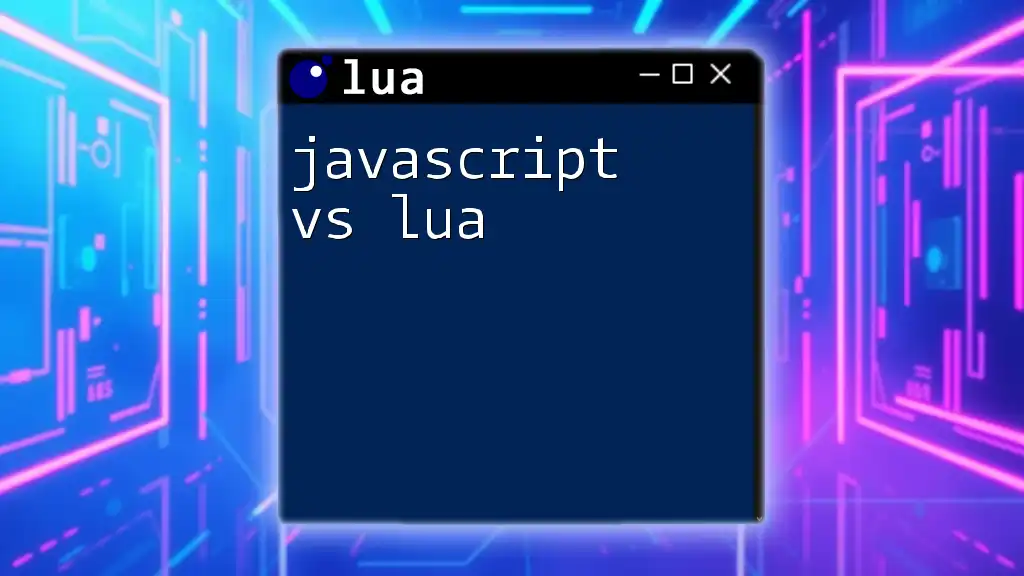In Lua, functions are reusable blocks of code that can take inputs, perform actions, and return outputs, enabling efficient coding practices.
Here's a simple example of a function in Lua that adds two numbers:
function addNumbers(a, b)
return a + b
end
print(addNumbers(5, 10)) -- Output: 15
What is a Function?
In programming, a function is a reusable block of code designed to perform a specific task. Functions allow us to encapsulate behavior and make our code more manageable. In Lua, functions are first-class citizens, meaning they can be assigned to variables, passed as arguments, and returned from other functions. This versatility emphasizes the importance of mastering functions in Lua as it lays the foundation for writing clean and efficient code.
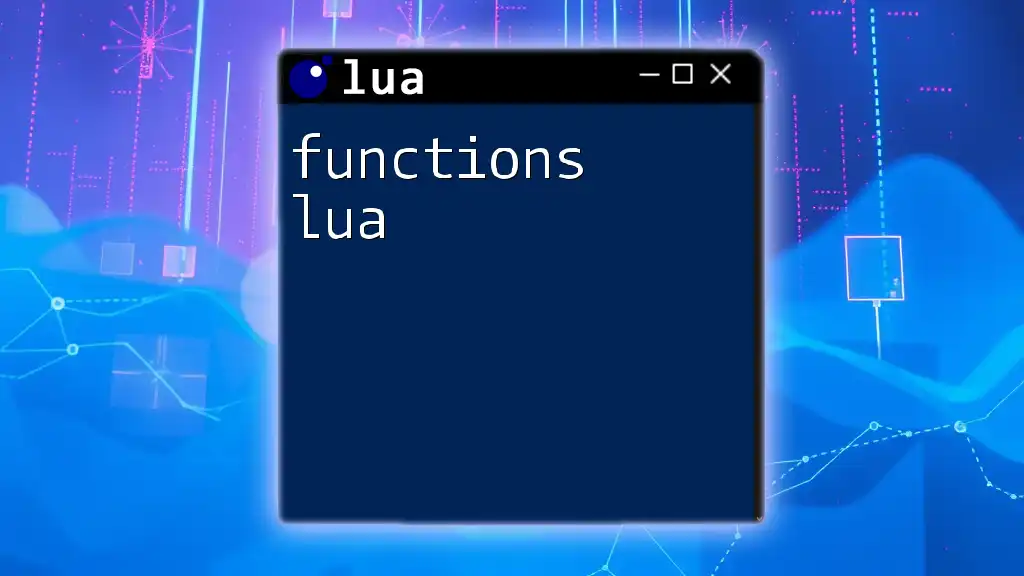
Benefits of Using Functions
Using functions in Lua comes with several advantages:
- Code Reusability: Functions enable you to write code once and reuse it throughout your program. This not only reduces redundancy but also simplifies updates and bug fixes.
- Improved Readability and Organization: Functions make your code easier to read and understand. By breaking the code into smaller, self-contained units, developers can quickly determine what each part of the code does.
- Simplified Debugging and Maintenance: When bugs arise, having functions allows you to isolate issues more efficiently. Testing individual functions is easier than testing large blocks of code.
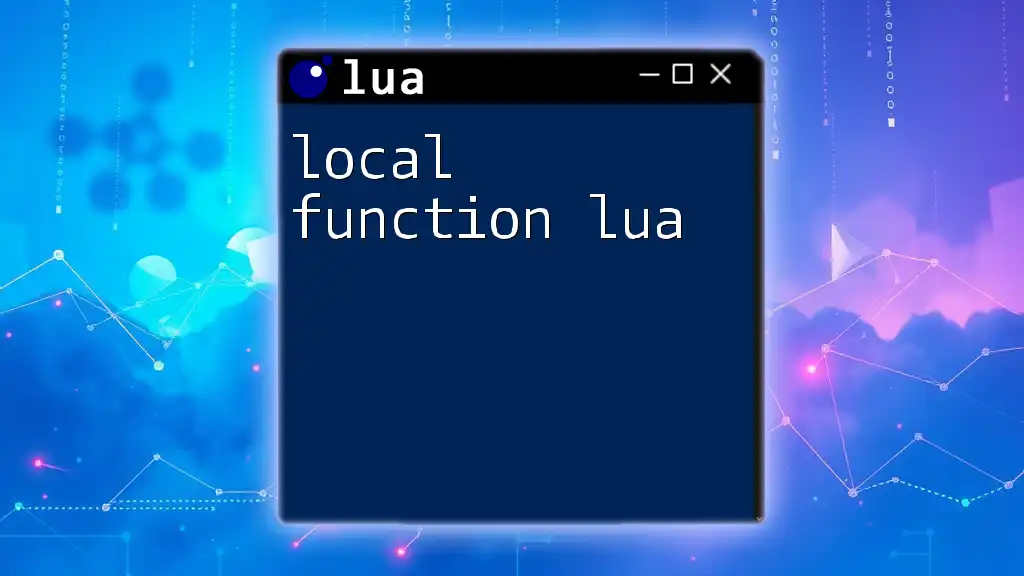
Defining Functions in Lua
Basic Function Syntax
Every function in Lua begins with the `function` keyword, followed by the function name and parentheses containing any parameters. The function body is defined between the `function` and `end` keywords.
For example:
function helloWorld()
print("Hello, World!")
end
Function Names and Naming Conventions
Choosing meaningful and descriptive names for your functions is crucial for maintainability. Common conventions include using camelCase or snake_case for function names.
Here’s an example of a simple function that calculates a sum:
function calculateSum(a, b)
return a + b
end
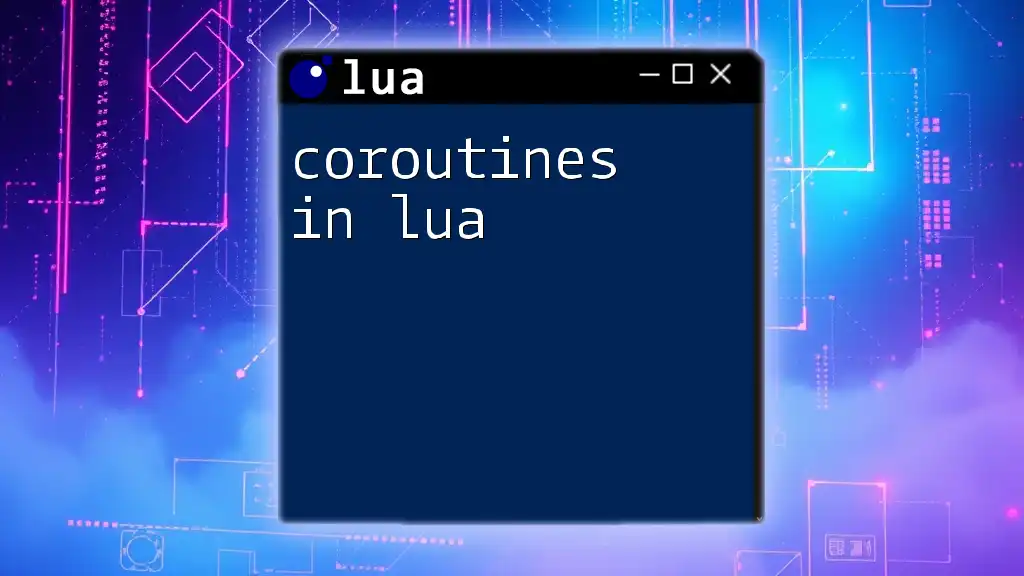
Function Parameters and Arguments
Understanding Parameters
Parameters are variables defined in a function declaration that serve as placeholders for the values passed to the function when it is called.
Passing Arguments to Functions
Arguments are the actual values that are passed into the parameters when calling a function. The distinction between parameters (the variables in the function definition) and arguments (the values supplied in the function call) is important.
Here’s an example:
function greetUser(name)
print("Hello, " .. name)
end
greetUser("Alice")
Default Values for Parameters
Sometimes, you may want a parameter to have a default value if no argument is provided. This is easily achieved in Lua:
function multiply(a, b)
b = b or 1
return a * b
end
In this function, if the second argument is omitted, `b` will default to `1`.
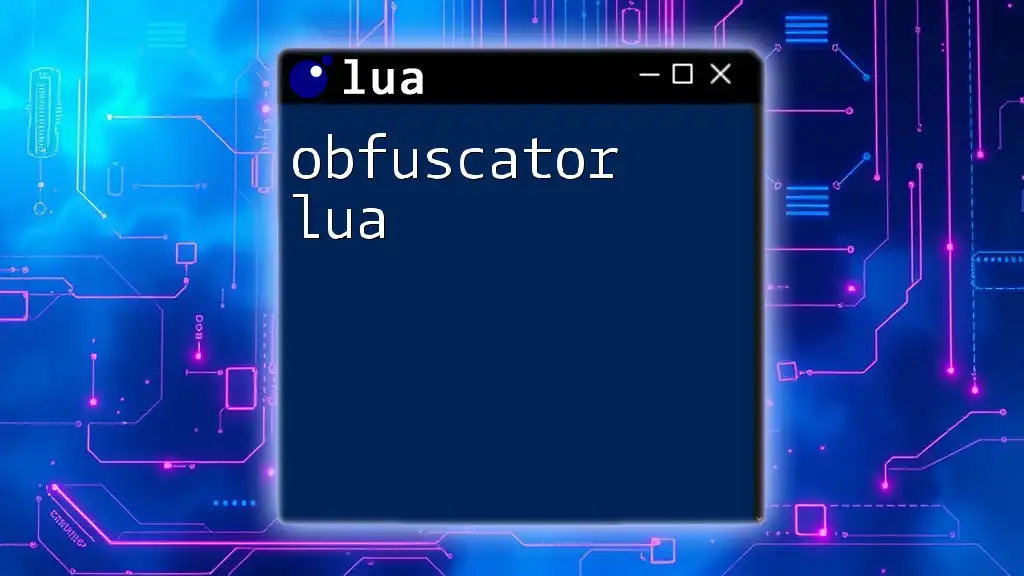
Return Values from Functions
Understanding Return Statements
Functions can return values using the `return` keyword. The value returned can be captured by the calling code.
For example:
function add(a, b)
return a + b
end
Multiple Return Values
Lua allows functions to return multiple values, which can be particularly useful. Here’s how to do it:
function getCoordinates()
return 10, 20
end
x, y = getCoordinates()
In this example, `getCoordinates` returns two values that can be assigned to multiple variables simultaneously.
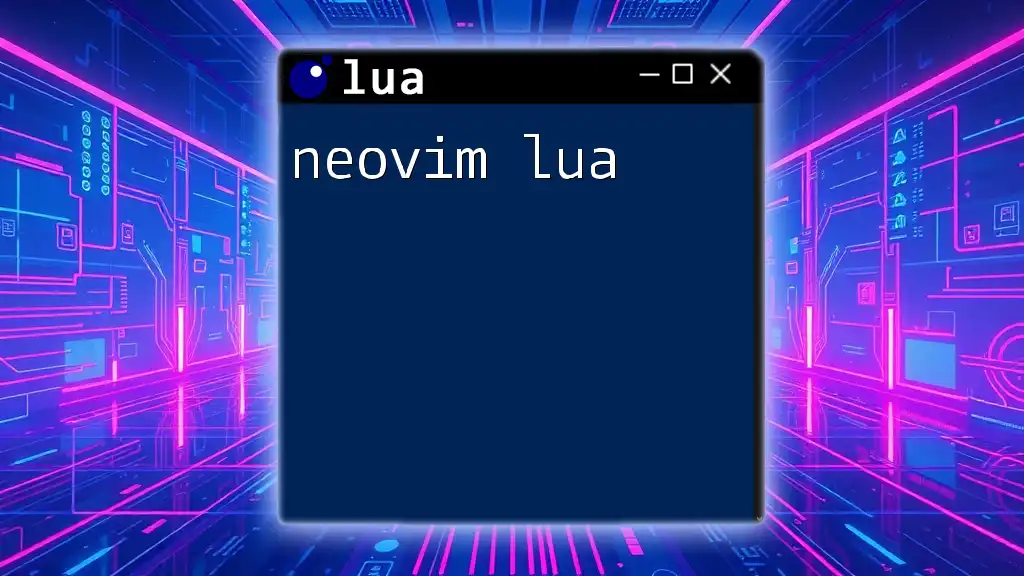
Scope of Variables in Functions
Local vs Global Variables
In Lua, variables can be local or global. By default, variables defined inside functions are local, which helps avoid naming conflicts.
For example:
function testScope()
local a = 10
print(a)
end
In this case, `a` is local to the `testScope` function and cannot be accessed outside.
Variable Shadowing
Variable shadowing occurs when a local variable has the same name as a global variable. The local variable will shadow the global one within its scope:
local x = 5
function example()
local x = 10 -- This 'x' shadows the global 'x'
print(x)
end
Calling `example()` will output `10`, while the global `x` remains `5`.
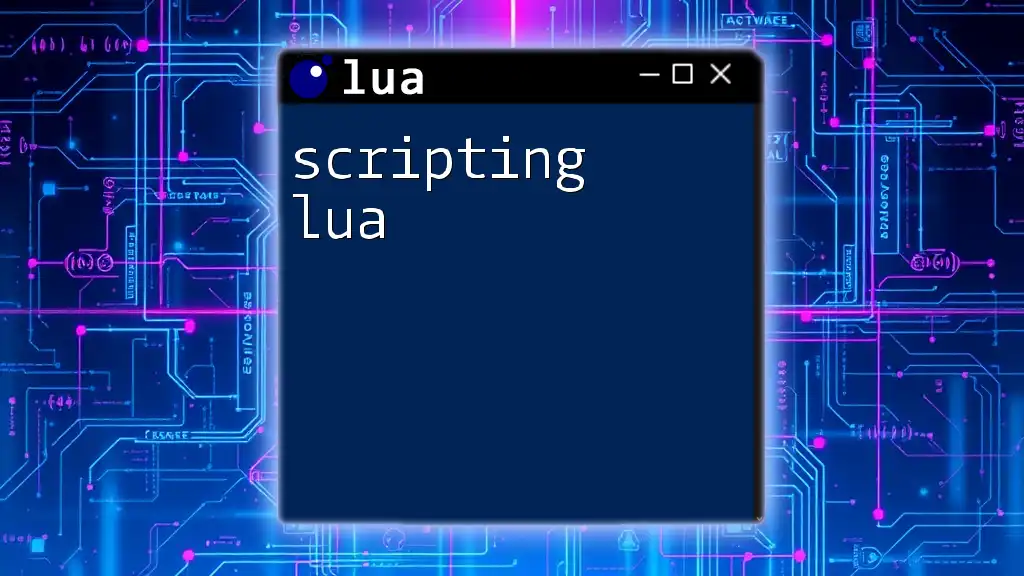
Higher-Order Functions
Introduction to Higher-Order Functions
Higher-order functions are functions that can take other functions as arguments or return functions as their results. This concept expands the versatility of Lua functions significantly.
Functions as First-Class Citizens
In Lua, functions are treated as first-class citizens, meaning they can be assigned to variables, passed as arguments to other functions, and returned from other functions.
Here’s an example demonstrating this:
function applyFunction(func, value)
return func(value)
end
Using Anonymous Functions
Anonymous functions, or functions without names, can be defined inline and passed as arguments. They are useful for short-lived functions:
local myFunction = function(x) return x * x end
print(applyFunction(myFunction, 5))
Here, `myFunction` is an anonymous function that takes a number and returns its square.

Recursion in Functions
Understanding Recursion
Recursion is a method where the solution to a problem depends on solutions to smaller instances of the same problem. It’s important to ensure there is a base case to prevent infinite loops.
Writing a Recursive Function
An example of a recursive function is one that calculates the factorial of a number:
function factorial(n)
if n == 0 then
return 1
else
return n * factorial(n - 1)
end
end
In this example, `factorial` calls itself until it reaches the base case of `n == 0`.
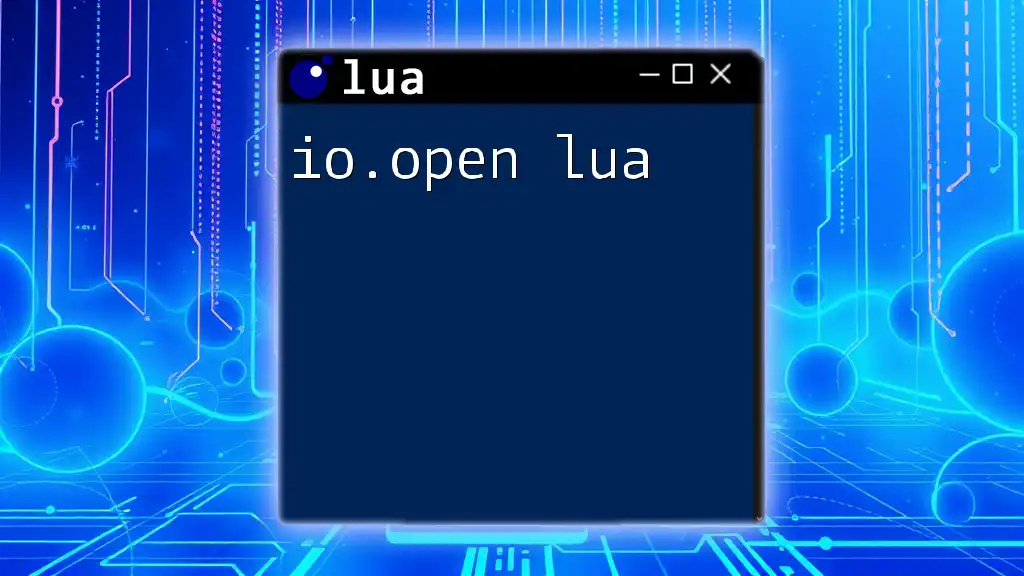
Best Practices for Writing Functions in Lua
Keep Functions Small and Focused
One of the hallmarks of good code is breaking it into smaller functions, each responsible for a single aspect of the program. This makes your code modular and easier to maintain.
Descriptive Naming Conventions
Choose function names that describe their functionality clearly. This enhances understandability for anyone reading your code, including your future self.
Documentation and Comments
Always document your functions. Use comments to elaborate on what the function does, its parameters, and its return values. This practice is essential for effective collaboration and future maintenance.
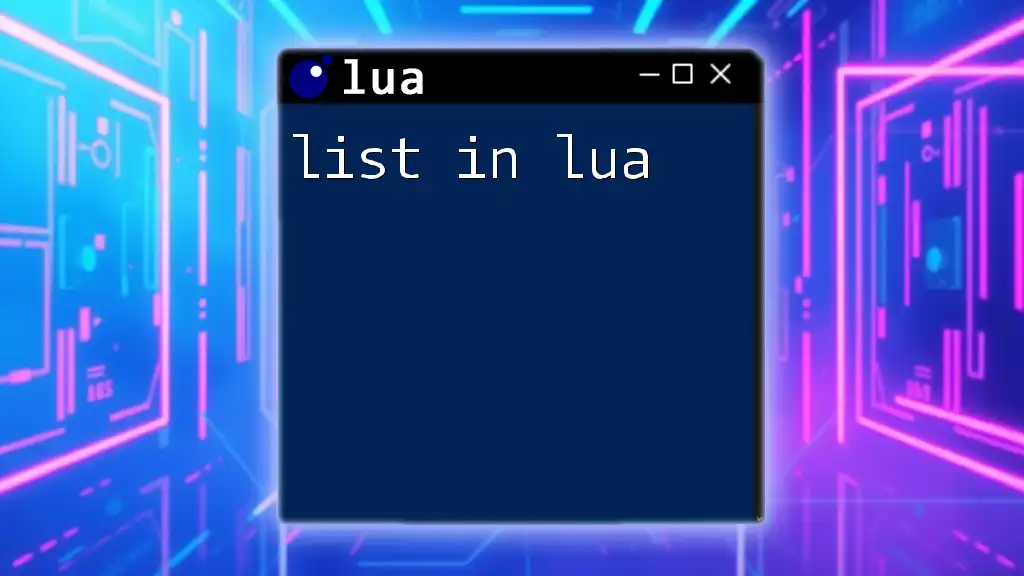
Common Pitfalls to Avoid
Using Global Variables Improperly
While it’s possible to use global variables in functions, it’s a practice best avoided unless absolutely necessary. Global variables can lead to unexpected behavior and bugs.
Ignoring Return Values
Neglecting to utilize return values can hinder the effectiveness of your functions. Always ensure that functions return useful information when applicable.

Recap of Key Points
Mastering functions in Lua is crucial for writing efficient and maintainable code. We covered the definition and importance of functions, how to define them, the use of parameters and return values, and best practices to follow.
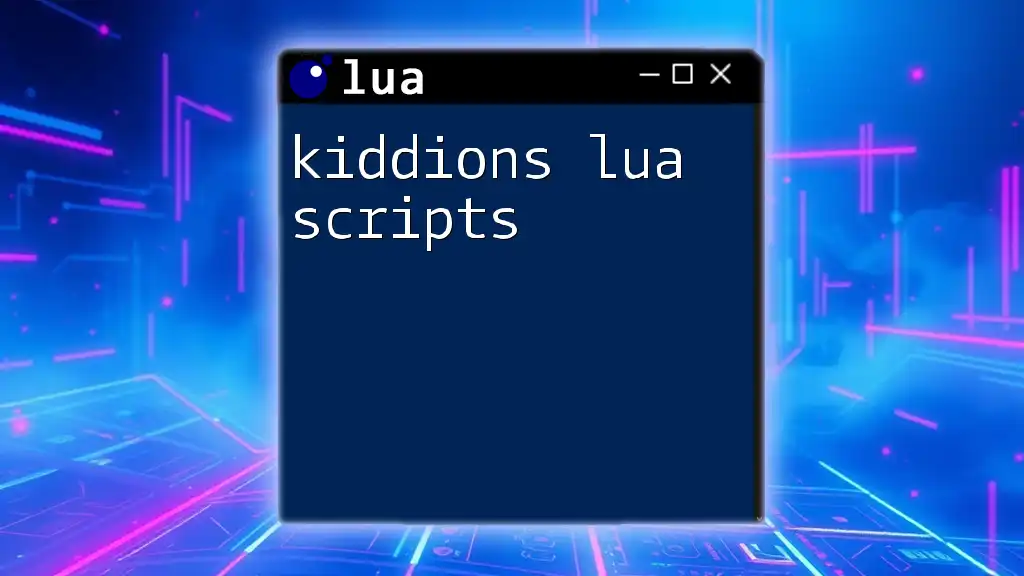
Resources for Further Learning
To further your understanding, consider exploring these resources:
- Online courses on Lua programming
- Recommended books such as "Programming in Lua"
- Official Lua documentation
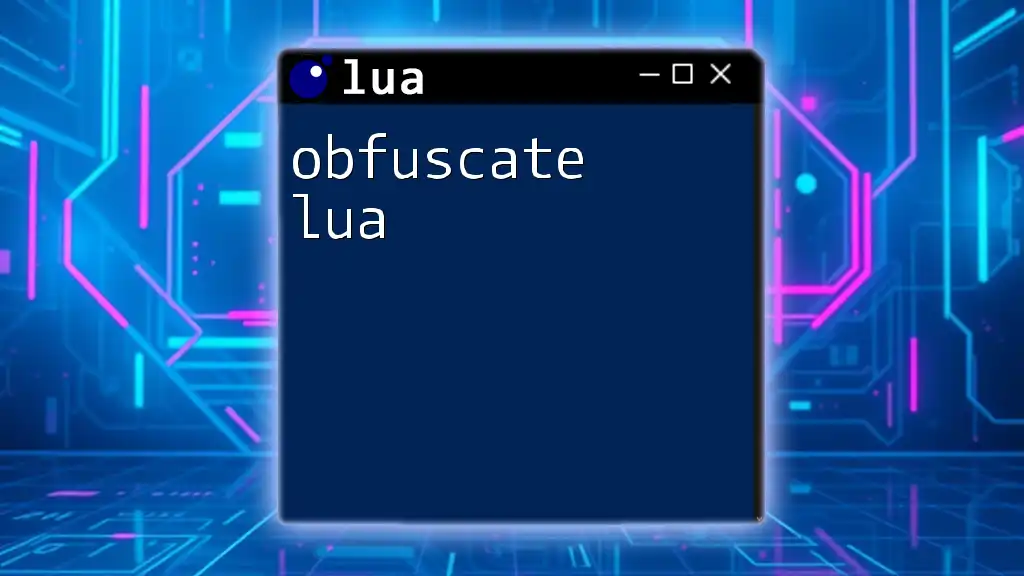
Encourage Readers to Practice
To solidify your understanding of functions in Lua, practice by creating your own little functions, experimenting with parameters, and returning multiple values. Regular practice will enhance your skill and confidence in using functions effectively in your projects.

